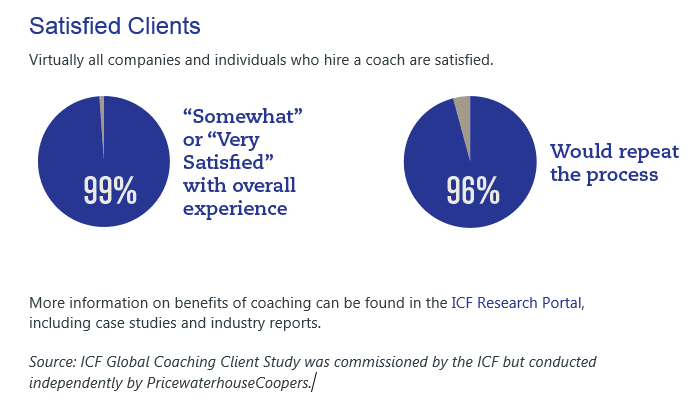„Relax, nothing is under control!” – how leaders deal with uncertainty
/in Allgemein, Coaching EN/by Delphine PietschmannBegging to be seen – 8 concrete tips to give genuine development feedback
/in Allgemein, Coaching EN/by Delphine PietschmannWe are all eager to be seen, be recognised, be valued, be challenged.
In a society where everything seems to go at the speed of light, where information flows continuously and in which we share truncated pictures of ourselves on the net, where mindfulness becomes a trend to help us focus and observe, why don’t we stop and start seeing people around us?
In that context, what means “seeing” a person? To me, it means:
- Having a genuine interest for their thoughts, feelings and needs
- Wanting to support them in their self-reflection and development
- Willing to give without expecting to receive back (no hidden agenda)
Over the past months, I have spent a great time coaching teams and individuals in companies, in the education and social sector as well as teaching future people managers about leadership. Here are a few things I heard from my clients:
“I would like to know what I am doing well and where I could improve in my job. But this is not common practice.”
“I have the impression anybody could do the job I am doing. I do not see why my contribution is of value. “
“I would like to have an objective, yet challenging feedback on the image I give to potential recruiters or to my team members.”
I realise that a major source of unhappiness at work, misfunctioning teams or disengagement of people is the lack of recognition through feedback of others.
I am not referring to yearly appraisal meetings in organisations where feedback is a compulsory step of a process and often linked to a financial reward. I am talking about simple, genuine interest for others and their behaviours, be it through positive or critical feedback.
Here are my 8 tips to help you show people you have truly seen them:
- Take time to pause and think through what exactly you want to share with the person and if your motivation to do so is sincere.
- Propose, do not impose! Always ask before giving feedback! Be sensitive to the answer and read between the lines (a polite yes is not always a true yes).
- Confidentiality and discretion: have the discussion face to face and in a quiet environment.
- Show appreciation: this is about supporting the person, not getting rid of what annoyed you!
- Take responsibility for your words: start your sentences with “I”, not “you”.
- Describe what you observed and what you felt: give concrete examples, explore the effect the person’s behaviour or words had on you.
- Do not interpret (invent reasons for the other’s behaviour) or generalise (“always”, “never”)
- Your feedback is a present: accept that the recipient may decide or not to act upon it, manage your expectations!
As you can see, it requires time and focus to do it properly. So what are the advantages of practicing it from time to time?
- It reinforces relationships
- It builds up a culture of open communication (and encourages others to do the same)
- It prevents conflicts
- It helps people self-reflect and develop (by “seeing” and being “seen”)
Why don’t you give it a try? Or support your team in building an open communication culture?
Do not hesitate to contact me to discuss.
Coaching: what to expect and how to choose your future coach? 2/2
/in Coaching EN/by Delphine PietschmannYou are interested in coaching and wish to know more about it before starting to look for the ideal Coach? In the second and final part of my previous article I would like to help you complete the picture.
How to select the right coach? What are the “no go’s”?
The title “coach” is not a protected name and therefore, it’s not always easy to make a selection amongst the various offerings. But it is essential to find the right person for you and your issues at the very moment you need it! My past experience as a coach, as an HR Business Partner and also as a coachee have shown me that being a coach cannot be improvised.
I have prepared this grid which covers the essential elements you should look at in order to gain clarity when meeting a potential coach:
Your coach is… |
Your coach is not… |
| … offering you a first non-binding introduction meeting so both of you see whether you get along well and the topic you bring belong to the coach’s competencies | … proposing you a standard programme without having met and listened to your needs and expectations |
| … holding a coaching certification delivered by an accredited body (these vary according to the country so you can ask your coach to talk about it and visit the websites he/she mentions). | … remaining vague about her/his qualifications or certifications |
| … regularly making use of consultation with colleagues, intervision and supervision with another coach as a continuous self-reflection process | … taking the risk to project on you her/his own deficiencies, prejudices, interpretations or fears |
| … questioning you in an open manner, proposing working methods, tools and a structure while keeping what I would call a caring critical eye, inviting you to reflect and leaving you time to think | … giving you his/her personal opinion without being asked (« if I were you, I would… »). Your coach does not know better what is good for you. |
| … working with you on an equal footing, allowing you to develop your own solutions and make better reflected decisions for your future | … trying to influence your choices, take control or push you in a direction or the other |
=> if you need time to respond to a question (and of course if the coach leaves you time to think!) it probably means the question was a good one!
=> if, following the first introduction meeting, you have a better vision of your objectives, maybe already a new perspective on what you consider an issue and above all if you have a good feeling with the person in front of you: it is a good sign !

What is the role of the coach? What will she/he bring you?
Your coach is not there to take you by the hand or tell you what you should be doing when one of your team members if not fulfilling their task or you would like to negotiate new objectives with your management.
No! And for the simple reason that YOU are a professional fully capable to make decisions, with all your knowledge, your feelings, your wishes, your strengths and weaknesses and also because only you:
- Know the environment in which you evolve!
- Carry inside your personal values, beliefs and principles!
- Have adapted your behaviours according to your past experiences!
- Will be able to influence your future situation!
We all carry inside the keys to answers to our questions but we often need an external, professional and neutral eye to bring them out. The eye of someone trained in questioning techniques, who uses established models and appropriate tools to define objectives, to help structuring your thoughts, to examine emotional mechanisms, to dissociate (observe yourself acting), to transfer learning experiences … all based on research in psychology, neurology etc…
This is where the role of the coach is of particular relevance because a coach is there to:
- Invite to take some distance, to get out of the frame while observing yourself, to change perspective
- Question in an open, sometimes confrontational manner, inviting you to reflection and introspection
- Serve as a sounding board, a mirror that helps uncovering hidden shortcomings and talents, rethink your communication skill, relationship skills or behaviours
- Propose tools, models helping to better understand own reactions, to structure complex thought processes, to explore inner motivators or plan future Actions
It is usually better to meet more than one coach before making a final decision: if they meet expectations in terms of skills and horizon, trust your intuition for the final decision!
In order to help you, here is a little list of questions you may ask yourself following an introduction meeting with a coach:
- Did I feel comfortable and secure: is there a basis for a trustful relationship?
- Did the coach respond clearly to my questions?
- Did I feel listened to and understood?
- Did the coach already asked some questions which brought me further in my self-reflection?
- Does he/she seem nice to me?
- Can I imagine working on personal topics with this person?
- Etc.
I hope this article will be useful to those of you still hesitating to work with a coach. And I hope I could transmit to you part of my passion and motivation to be a coach!
Do not hesitate to contact me to set up a first introduction meeting!

Coaching: what to expect and how to choose your future coach? 1/2
/in Coaching EN/by Delphine PietschmannYou are interested in coaching and wish to know more about it before starting to look for the ideal coach?
In this article, I am describing the key elements to think about when looking for a professional coach.
One thing is sure: it is definitely worth it! Time and efforts invested in coaching with a competent partner at your side will be well rewarded! Here is an excerpt of an independent study led by Price Waterhouse Coopers and commissioned by the ICF (International Coaching Federation) about customer satisfaction after coaching:

When does coaching make sense? Coaching can (for example) make sense if:
- You are managing or are yourself going through important changes in your life or at work (company restructuring, professional move, expat mission, new family challenged that impact your professional life and lead to existential questions…)
- You are taking over or aim at taking over new tasks and responsibilities.
- Your management responsibilities become a burden.
- You manage or currently go through change processes.
- You would like to look deeper into your conflict management skills.
- You want to strengthen your self-esteem, your serenity.
- You feel overworked, exhausted and look for new ways towards a better balance.
- You stand in front of important decisions.
- You are looking for personal feedback and an authentic sounding board.
How does a coaching process look like?
A coaching mission always starts with a first in-take session between you and your potential coach. It is a non-binding first meeting to check the chemistry between you: if both feel at ease to start working together, the first session will be used to look in depth at the coachees objectives. Spending time on defining precisely what brought you there will already clarify a lot and help your coach plan the next steps.
Your coach will then follow a common thread around your personal goals and the overall coaching process, which may look like this:

Generally, a coaching mission will last between 7 and 15 hours and the sessions will be spread over a total period of 3 to 9 months. It is important that you have time to put in place solutions you have developed with the support of coaching and reflect on the experience made with your coach.
The final session will include an evaluation which is essential to both you and your coach to acknowledge learnings and consolidate them.
Number and duration of each session may vary depending on your specific needs and the habits of your coach. The coaching process is, in any case, linked to the client’s goals and limited in time. This is a defined period of time contract. However, the relationship between coach and coachee may be reactivated any time through a new mission.
In my next article, I will continue by looking at the following questions:
What can you expect from your future coach? what are the “no go’s” ?
What is the role of a coach? what will she/he bring you?
DP – Developing People
Coaching, Mediation, HR Advisory & Training
Delphine Pietschmann
Maximinstr. 5
D-54292 Trier






